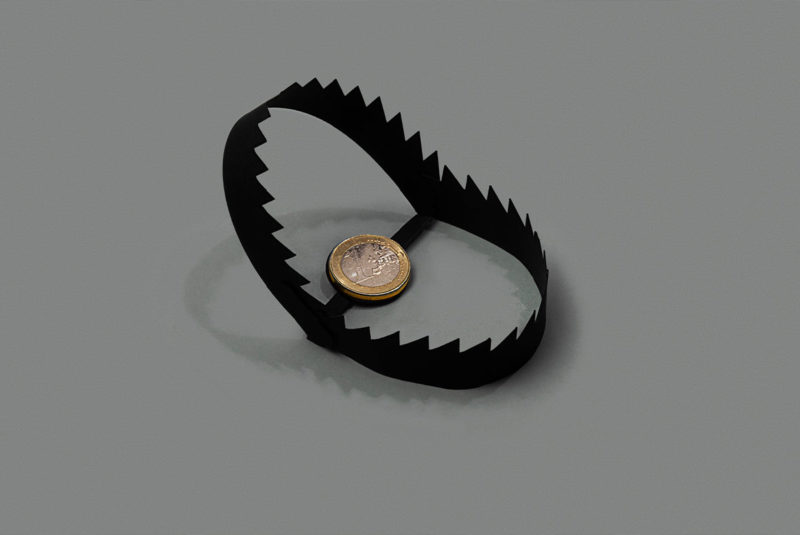Ready To Buy a Home?
Get Approved to Buy a Home
Rocket Mortgage® lets you get to house hunting sooner.
You can’t just buy a house. You’ve got to prepare to buy a house. That means figuring out how much home you can afford, weighing mortgage options, getting the best rates and organizing your paperwork.
There’s a financial professional who can help you navigate the mortgage application process – the mortgage loan originator (MLO).
A mortgage loan originator helps home buyers find, apply for and get mortgage loans. Sure, their jobs may not be glamorous, but MLOs are rockstars in the mortgage world.
An MLO will play a crucial role in getting you the financing (aka mortgage loan) you’ll need to unlock the doors to homeownership.
The Role of a Mortgage Loan Originator
So, what’s an MLO, exactly? Mortgage loan originators are licensed professionals. They are normally your first point of contact when you apply for a loan. (FYI: The process of starting a loan application is known as loan origination – which is where MLOs get their name from.)
But their work doesn’t end at the application stage.
Your MLO will be by your side from the application process to loan approval to closing. These are the steps an MLO will take to help you navigate the mortgage process:
1. Show you mortgage products
As your initial point of contact, a mortgage loan originator kick-starts the mortgage process. They’ll explain the types of mortgages that are available to you, including their interest rates and loan terms. They may work with one lender or a network of lenders to guide you to an appropriate loan package for your real estate needs. If they work with a network of lenders, that’s a special class of MLO called a mortgage broker.
2. Get you a mortgage preapproval
A mortgage preapproval is a letter that spells out how much a lender may be willing to lend you to buy a home. To figure out how much that would be, an MLO uses preset financial formulas and standards. The preapproved loan amount – which is based on a borrower’s income, assets and liabilities (think: debt and bills) – is a handy number to keep in mind while you’re house hunting because you’ll already know how much you can borrow.
3. Take your mortgage application
When you’re ready to start the loan application, the MLO collects all of your paperwork and required financial documents, like pay stubs and tax returns. Once everything’s been submitted, the MLO hands your completed application over to the lender’s underwriter.
4. Monitor the application process
The MLO oversees the loan application process and works with the lender on the borrower’s behalf. A big part of this job is letting you know if loan processors or underwriters need more information. The aim of all of this work is to steer you and your mortgage application closer and closer to closing day.
Mortgage loan originators are typically paid commissions from loan origination fees (the cost of processing your loan application). They are as invested in matching you with the right loan for your financial situation as you are. It decreases the odds of problems or running into delays and increases your chances of getting approved for a mortgage.
When closing day comes (courtesy of the hard work of your MLO and others) the lender releases the money for your purchase, and you pay the origination fee as part of your closing costs. On average, origination fees are 0.5% – 1.0% of the loan amount and go toward an MLO’s commission.
There are national regulations that help ensure MLOs are working in your best interest. According to the Secure and Fair Enforcement for Mortgage Licensing (SAFE) Act, anyone who offers, negotiates and accepts a residential mortgage loan application must be licensed or registered.
Mortgage Loan Originator vs. Officer vs. Banker vs. Broker
Once you start shopping for a loan, you cross paths with a variety of mortgage professionals. And they have different titles and responsibilities. Mortgage loan officers, mortgage bankers and mortgage brokers are all involved in loan origination.
You’ll notice a lot of overlap in their job duties. But it’s important to know who you’re working with and how to tell them apart.
Let’s put each one under the MLO spotlight.
What is a loan officer?
A loan officer works for a specific lender and can match you to that lender’s mortgage products. You wouldn’t be the first person to wonder what the difference is between a loan originator and loan officer. Basically, a loan officer is an MLO, but an MLO isn’t always a loan officer.
Loan officers help you choose and apply for a loan and work with you and the bank’s underwriters until your real estate purchase closes. A loan officer can only originate loans from the lender they represent, so you’ll need to look around if you want to compare the interest rates of different lenders.
How to become a mortgage loan originator
Mortgage loan originators must register with the Nationwide Multistate Licensing System (NMLS®) and receive a state license or certificate. It’s important to understand both the national and state requirements because they can vary significantly.
To become an MLO, the NMLS® requires that:[1]
- You complete 20 hours of NMLS®-approved education, covering topics like federal laws, ethics, fraud, consumer protection and nontraditional mortgage lending.
- You achieve 75% on the written NMLS® mortgage license exam test.
- You provide a credit report.
- You provide fingerprints for a criminal background check.
Some states have more stringent requirements for testing and licensing. After receiving their license, an MLO must keep their license in good standing and complete continuing education requirements each year.
What is a mortgage broker?
A mortgage broker originates loans for a network of lenders. Because brokers don’t work for one particular lender, a broker can show you interest rates and terms from different lenders, making it easier for you to compare. Mortgage brokers can also act as MLOs, helping borrowers complete the loan application and gather paperwork. They also work with the lender on your behalf right up to closing.
What is a mortgage banker?
Unlike a mortgage broker, who will hand over your completed application to a lender, a mortgage banker handles the entire loan origination process. They take your application, perform the underwriting and fund the approved loan. A mortgage banker can be an individual or a company, and many of them can offer a variety of nonconventional loans.
The term “mortgage loan originator” applies to mortgage loan officers, mortgage brokers and mortgage bankers, too.
Your MLO can be an individual or an entity and the hallmark of their role is to guide you through the loan application process from start to finish.
Choosing the Right Mortgage Loan Originator for You
Now that you know who’s who, it’s time to find an MLO. A good mortgage loan originator helps a borrower seamlessly navigate the financing process and should:
- Know a lot about mortgages and assistance programs so they can find the right loan for your situation
- Be excellent communicators and responsive to your questions and concerns
Here are some strategies you can use to find an MLO:
- Ask for referrals: Your real estate agent and lawyer can probably recommend an MLO they’ve worked with. You can also ask friends and family if they’d recommend the MLO who helped them with their mortgage.
- Confirm licensing: Search for an MLO on the NMLS® Consumer Access℠ page. This free service verifies whether a company or professional is registered and authorized to conduct business.
- Check their reputation: Find out if an MLO is accredited with the Better Business Bureau®. Click the “BBB accredited businesses only” button and see if any complaints have been filed against an MLO. Peruse online ratings and reviews about their services on social media and consumer watchdog platforms.
It might be a good idea to meet with two or three MLOs. An in-person or virtual chat could help you decide between different candidates. Your relationship with your MLO is an important factor to consider. It’s important to team up with someone who’s enthusiastic about walking you through the process and responding to all of your concerns and questions.
These questions can help you get an idea of an MLO’s professionalism and interpersonal skills:
- How long have you worked as a licensed mortgage loan originator? What’s your background?
- Why do you think this mortgage is the right one for me? How many of your clients have chosen this mortgage?
- What are your fees and commissions?
- Can you outline the mortgage process for me? How long does it usually take from start to finish?
- Is there anyone else on your team that I’ll be in contact with during this process?
MLOs Will Guide You Home
Buying a home is a big decision to make – and a big financial investment. Getting the right mortgage loan originator can simplify an unfamiliar process.
Whether you choose a mortgage broker who can help you comparison shop or a loan officer at your bank, make sure you’re compatible. Look for a knowledgeable MLO who invites questions, helps you make informed decisions and is excited to play a key role in your homeownership journey.
Get approved to buy a home.
Rocket Mortgage® lets you get to house hunting sooner.
The Short Version
- A mortgage loan originator is a person or lending company that works with home buyers and banks to process and secure mortgage loans
- Mortgage loan originators are typically paid a commission by the lender when a loan closes
- Your mortgage loan originator will guide you through the entire mortgage application process, from applying to closing
Nationwide Multistate Licensing System (NMLS). “NMLS Policy Guidebook for Licensees.” Retrieved January 2022 from https://nationwidelicensingsystem.org/slr/common/policy/NMLS%20Document%20Library/NMLS%20Policy%20Guidebook%20for%20Licensees.pdf




